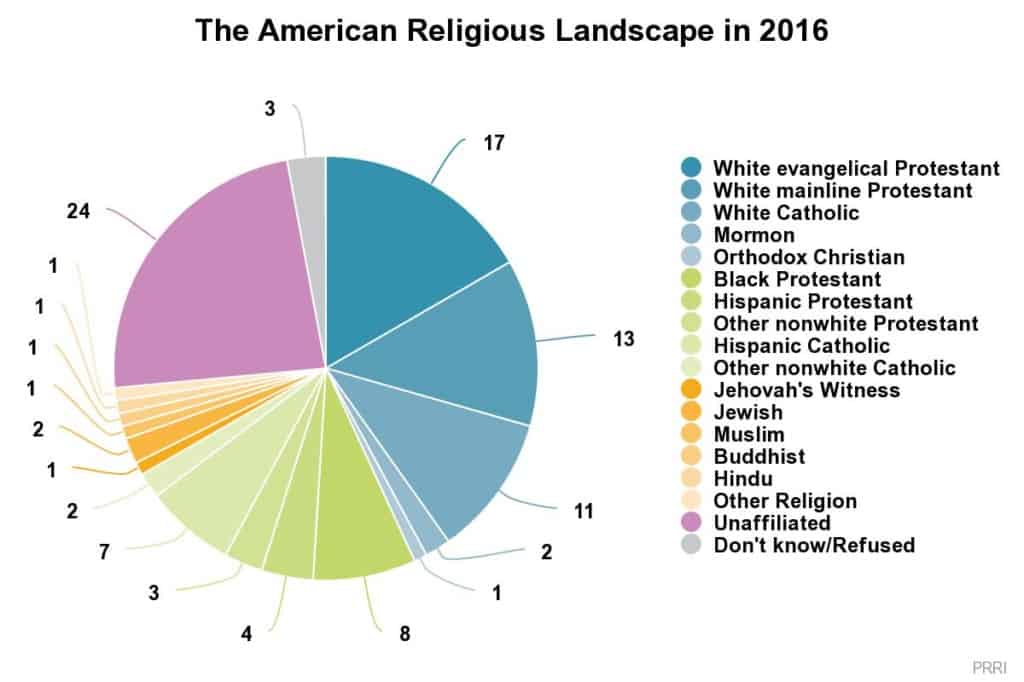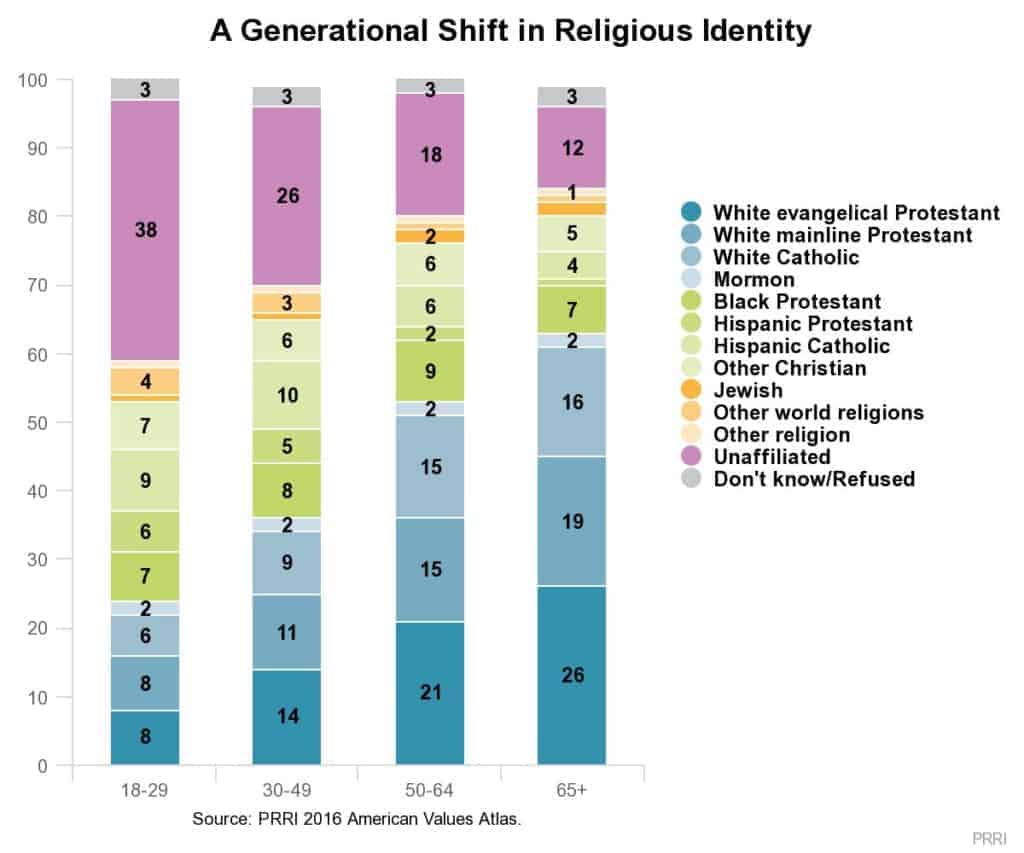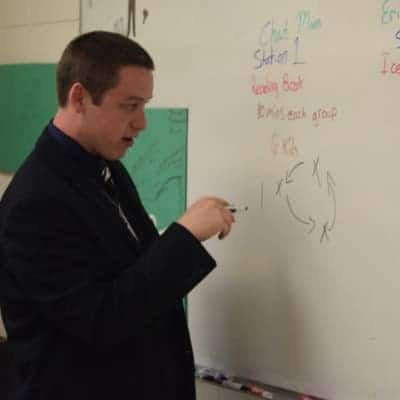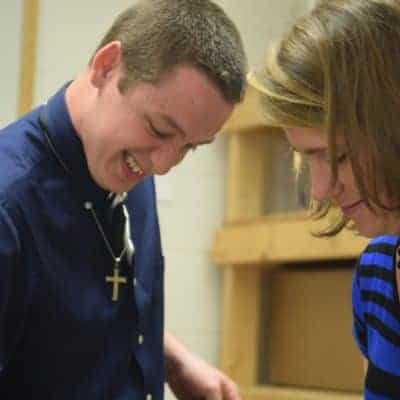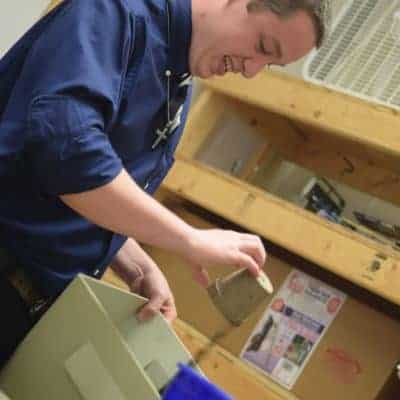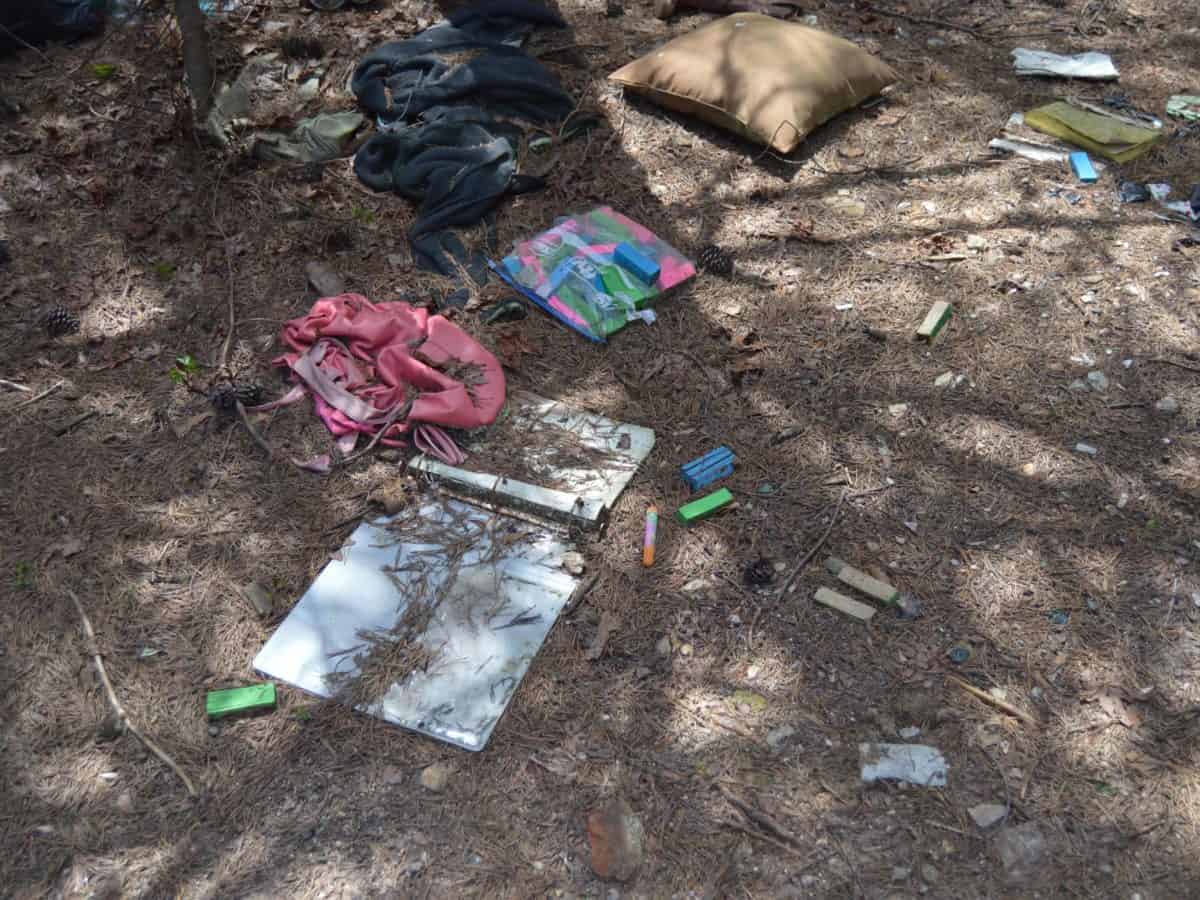

As you drive around North Carolina, it is impossible not to notice how faith continues to permeate our communities.

From the very beginning of our work at EducationNC, the story of faith has been part of the story we are telling about education in our state. Students finding faith. Faith finding students. The students who identify with the “nones” — a term of art that has arisen to describe those unaffiliated including atheist, agnostic, not religious but spiritual, and secular among others.
In September 2017, the Public Religion Research Institute (PRRI) released a report, America’s Changing Religious Identity. Charts from the report paint a picture of how religious identity is shifting nationally, including by age for those 18 and older:
“Young adults are more than three times as likely as seniors to identify as religiously unaffiliated (38% vs. 12%, respectively),” the report says.
In North Carolina, PRRI found the top religious groups are white evangelical protestants (28 percent), unaffiliated (19 percent), and then a tie between white mainline protestants and black protestants (14 percent each).1
In our November survey of the 5,316 high school students who participated in First Vote NC, 13.5 percent said they attend a religious service more than once a week, 31.3 percent said they attend weekly, 33.0 percent said they attend infrequently, and 22.1 percent said they never attend religious services.
On my first trip out west for EdNC, I met a student in Clay County named Chad who shared with me his experience of faith. I have been thinking about the adolescent experience of faith ever since I met him.
EdNC’s first short documentary, Live United, involved the work of Reverend Richard Joyner and his work at the Conetoe Family Life Center.
Last summer, I met a young girl in Madison County. Earlier in the year, her mother died, another life lost to our opioid epidemic. But it was how the girl wrote about faith that called us to listen more carefully to these stories. She grew up in a holler isolated from the fabric of society as most of us know it until she went to live with her grandmother. Then she enrolled in school. Then she went to the doctor. Then she started attending Bible school and church. She writes of her life before and after, wondering, “Would I know that I am a good photographer? Or that I like science experiments and reading?” If she hadn’t moved to her grandmother’s house, she writes,
“I wouldn’t know who God is.”
We have been moved by the work of Life House Ministries to serve students living in the homeless camps outside of Hickory.
James Emery White is the founding pastor of Mecklenburg Community Church in Charlotte. In an interview with Jonathan Merritt on faith and culture in the Religion News Service, White discussed his book, Meet Generation Z: Understanding and Reaching the New Post-Christian World.
In the interview, White says of Generation Z, those born between the mid-1990s and mid-2000s, “They are the youngest generational cohort on the planet — and the largest. This means that in the coming years they will not simply influence culture, but be culture.”
White goes on to identify three trends about the faith of Generation Z. He says, “First, they have a strong desire to make a difference with their lives and are attracted to what will enable them to make that difference. A faith that is privately engaging, but socially irrelevant, will not attract them. Second, traditional morality will be a tricky conversation, as they are not only sexually fluid themselves, but consider relational acceptance and lifestyle affirmation to be synonymous. Individual freedom is simply a core value. Third, a final faith question will revolve around their amazingly deep sense of awe and wonder about the universe. More than any other generation, Generation Z has an openness to spirituality via cosmology.”
In a PRRI report released in November 2017 on spirituality, in the 18-29 year old age range, 13 percent of those surveyed identified as spiritual and religious, 26 percent identified as spiritual but not religious, 19 percent identified as not spiritual but religious, and 24 percent identified as neither.2
In my travels across North Carolina, two things seem really important right now: the all in y’all and hope. Many people are still seeking and finding inclusion and hope in our schools and our churches, but the role of both our schools and our churches in the fabric of our society is shifting for more and more North Carolinians. We need to listen, explore, and better understand those shifts.
Our series this week and future research on the adolescent experience of faith will do just that, but as with all of our work, we need you to lift up your voice and share your experience. You can start by taking this survey about faith:
We hope the collective voice of all North Carolinians, including those in our education and faith communities, will shape our future by shaping the contours of issues, conversation, and change across the state we all love.


